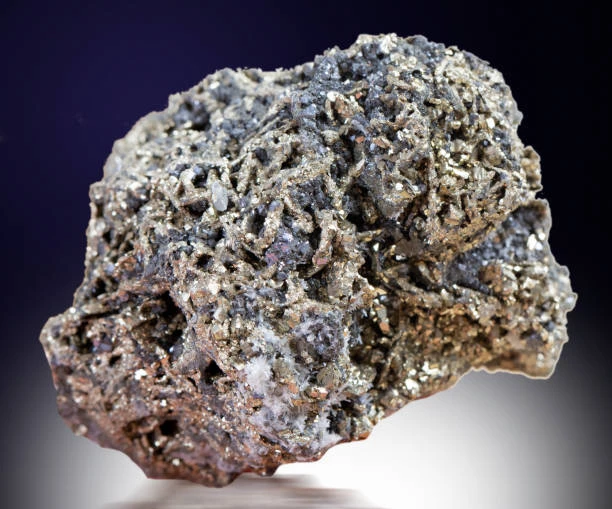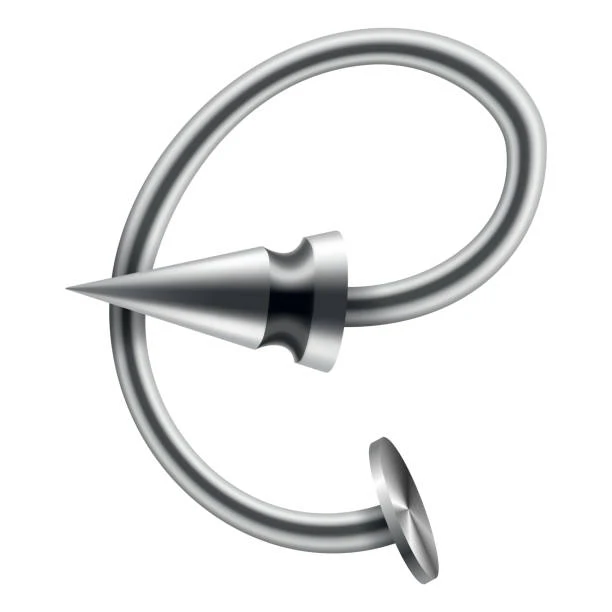 What is titanium jewelry?
What is titanium jewelry?
Titanium jewelry is a modern and durable alternative to traditional precious metals. Titanium is a lightweight yet incredibly strong metal that is hypoallergenic, corrosion-resistant, and scratch-resistant. It has a sleek, gray-white color and can be anodized to create vibrant hues like blue, purple, and black. Titanium jewelry pieces range from classic wedding bands and solitaire rings to bold statement necklaces and bracelets. The metal’s strength and affordability make it an appealing choice for everyday wear, while its unique aesthetic offers a contemporary and stylish look.
Properties of titanium (lightweight, strong, hypoallergenic)
Here is a list of key properties of titanium with a brief description of each:
- High Strength-to-Weight Ratio: Titanium has an excellent strength-to-weight ratio, making it ideal for applications where low weight and high strength are required, such as in aerospace and automotive industries.
- Corrosion Resistance: Titanium forms a stable, protective oxide layer that makes it highly resistant to corrosion, even in harsh environments like seawater and chemical solutions.
- High Melting Point: With a melting point of 1668°C (3034°F), titanium has a high melting point, making it suitable for applications involving high temperatures.
- Low Density: Titanium has a relatively low density of 4.5 g/cm³, about 60% that of steel, which contributes to its high strength-to-weight ratio.
- Biocompatibility: Titanium is non-toxic and biocompatible, making it an excellent choice for medical implants and prosthetics.
- Ductility: Titanium is ductile, meaning it can be stretched or deformed without breaking, which makes it suitable for various forming processes.
- Paramagnetic: Titanium is paramagnetic, meaning it is weakly attracted to magnets, which can be beneficial in certain applications.
- Reactivity at High Temperatures: While corrosion-resistant at lower temperatures, titanium becomes reactive with oxygen and nitrogen at high temperatures, requiring special handling during processing.
- Alloy Formation: Titanium can be alloyed with other metals like aluminum, vanadium, and molybdenum to enhance its properties, such as strength, corrosion resistance, and heat resistance.
- Low Thermal and Electrical Conductivity: Titanium has relatively low thermal and electrical conductivity compared to other metals, which can be advantageous in certain applications.
Uses of titanium in various industries
Titanium and its alloys are renowned for their exceptional properties, including high strength-to-weight ratio, excellent corrosion resistance, and biocompatibility. Listed below are some of the uses of titanium in different industries
Aerospace Industry
Titanium’s high strength-to-weight ratio and corrosion resistance make it ideal for aircraft and aircraft engines, where it is used in both structural components and safety-critical parts.
Biomedical Applications
Due to its excellent biocompatibility, titanium is extensively used in dental implants, surgical implants, and other medical devices. Its ability to integrate well with biological tissues makes it a preferred material in the medical field.
Automotive Industry
Titanium alloys are used in high-performance automotive components, such as sports car engines, due to their lightweight and high strength, which contribute to improved vehicle performance and fuel efficiency.
Marine and Chemical Industries
The corrosion resistance of titanium makes it suitable for marine engineering applications, such as ship components and offshore structures, as well as chemical processing equipment like heat exchangers and steam condensers
Electronics Industry
Titanium’s properties, including high specific strength and good corrosion resistance, have led to its increasing use in electronic devices such as computers, mobile phones, and wearable technology.
Energy Sector
Titanium is used in nuclear energy applications and other energy-related fields due to its durability and resistance to extreme conditions.
Manufacturing and Machining
Despite its benefits, titanium is challenging to machine due to its poor thermal properties. Advanced machining techniques, such as laser-assisted and ultrasonically assisted machining, are being developed to improve its machinability and reduce costs.
Reasons for the rise in popularity of titanium jewelry
Here is a list of reasons for the rise in popularity of titanium jewelry, with a short paragraph on each:

Affordability
Titanium offers a luxurious look at a more affordable price compared to precious metals like gold and platinum. It allows people to enjoy a high-end appearance without the exorbitant cost.
Lightweight
Titanium is significantly lighter than other metals, making it comfortable to wear, especially for rings and earrings. The lightweight nature reduces strain and makes wearing jewelry more tolerable, even for active lifestyles.
Durability
Titanium is an exceptionally strong and durable metal, resistant to scratches, dents, and corrosion. It does not require frequent polishing or maintenance, unlike softer metals like gold, ensuring long-lasting beauty.
Hypoallergenic
Pure titanium is hypoallergenic, making it an ideal choice for those with metal allergies or sensitivities. It is biocompatible and less likely to cause skin reactions, even for fresh piercings.
Versatility
Titanium can be anodized to create a wide range of vibrant colors, from classic gold and rose gold to bright pinks and purples. This versatility allows for unique and personalized jewelry designs.
Corrosion Resistance
Titanium is highly resistant to corrosion and rust, making it suitable for those with active lifestyles or exposure to water and chemicals. It maintains its luster and integrity over time.
Unisex Appeal
Titanium jewelry, particularly wedding bands and earrings, can be designed to suit both men and women, catering to a broader audience.
Different types of titanium jewelry
Here is a list of different types of titanium jewelry with a short description for each:

- Titanium Rings: Titanium rings, including wedding bands, are a popular choice due to their durability, hypoallergenic nature, and affordable price compared to precious metals. They come in various styles like tension-set, inlaid with precious metals or diamonds.
- Titanium Necklaces: Titanium necklaces and pendants offer a sleek, modern look while being lightweight and corrosion-resistant. They can be anodized in vibrant colors or have gemstone accents.
- Titanium Bracelets: Titanium bracelets are strong yet comfortable to wear daily due to the metal’s lightweight quality. Designs range from simple chains to cuff styles with intricate patterns.
- Titanium Earrings: Hypoallergenic titanium earrings are an excellent choice for those with metal sensitivities. Styles include studs, hoops, dangles, and more in various anodized colors.
- Titanium Body Jewelry: Titanium is a popular choice for body jewelry like barbells, labrets, and dermal tops due to its biocompatibility and strength. It’s ideal for new piercings and long-term wear.
- Anodized Titanium Jewelry: The anodization process allows titanium jewelry to be colored in vibrant shades like blue, purple, and rainbow oil slick finishes. This expands design possibilities.
- Titanium Watches: Lightweight yet durable titanium is used in high-end watch cases and bands, offering a premium look and feel.
Health Benefits of Titanium Jewelry
Wearing titanium jewelry is believed to offer several health benefits:
Balances the body’s electromagnetic energy:
Wearing titanium jewelry can help balance your body’s electromagnetic energy by its strong ionizing effects. Titanium is believed to support a balanced electrical current throughout your body, counteracting the negative impact of electromagnetic waves from electronic devices we’re always around. This may help keep the natural electrical balance in your muscular and nervous systems, possibly reducing symptoms like headaches, dizziness, ringing ears, muscle stiffness, and lower back pain.
Reduces muscle pain and stiffness:
Wearing titanium jewelry may help reduce muscle pain and stiffness because of its ionizing properties. Titanium is believed to create a balanced electrical current in the body, which can positively affect the muscular system. The ionizing effects of titanium could lead to less impact on the nervous and muscular systems, resulting in decreased muscle stiffness and pain, as well as enhanced overall muscle function. Many individuals have shared that they felt relief from chronic muscle pain, stiffness in the shoulders and lower back, and better mobility when they started wearing titanium bracelets or necklaces daily.
Increases blood flow and circulation:
Wearing titanium jewelry can help boost blood flow and enhance circulation in your body. Titanium’s magnetic properties may activate the magnetic field near areas of discomfort, prompting the body to release its natural pain relievers. This increased circulation enables more oxygen and nutrients to get to affected areas, lessening inflammation and supporting the healing process. Many individuals have noticed improved blood flow and reduced swelling or stiffness in their joints and muscles after adding titanium magnetic bracelets or necklaces to their daily routine.
Provides pain relief and reduces inflammation:
Wearing titanium jewelry may help ease pain and reduce inflammation in your body. Titanium’s magnetic properties could boost blood flow, sending more oxygen and nutrients to sore areas. This can prompt your body to release natural painkillers and lessen inflammation. Many folks have found relief from issues like arthritis and reduced swelling by wearing titanium magnetic bracelets or necklaces daily.
Hypoallergenic and suitable for sensitive skin:
Titanium jewelry is a great option for people with sensitive skin or metal allergies because it doesn’t contain nickel, a common allergen in other metal jewelry. This means titanium jewelry is less likely to cause skin irritations or allergic reactions. Unlike plated jewelry that can lose its hypoallergenic coating over time, solid titanium jewelry remains safe for those with metal sensitivities. It’s a comfortable choice for individuals with skin conditions like eczema or dermatitis, staying hypoallergenic throughout its lifespan.
Natural pain relief
Wearing titanium jewelry can help relieve pain naturally by boosting circulation and triggering the body’s pain-relieving chemicals. The magnetic properties of titanium may enhance blood flow to painful or stiff areas, allowing more oxygen and nutrients to reach those spots. This better circulation can prompt the body to release endorphins and other natural painkillers, which can lead to decreased pain and swelling. Many individuals have shared that they found relief from long-term issues like arthritis, as well as less muscle tension and joint discomfort, by adding titanium magnetic bracelets or necklaces to their daily routine.
Reduced inflammation
Wearing titanium jewelry is thought to help reduce inflammation in the body by improving blood circulation. The magnetic properties of titanium are believed to increase blood flow around areas of pain or inflammation, helping more oxygen and nutrients reach those affected regions. This enhanced circulation can lessen swelling and inflammation by aiding in the removal of inflammatory byproducts and supporting the healing process. Many individuals have noticed a decrease in inflammation, especially in conditions like arthritis, after adding titanium magnetic bracelets or necklaces to their daily routine.
Increased energy levels
Wearing titanium jewelry may boost energy levels by balancing the body’s electrical currents. Titanium’s ionizing effects help maintain a steady flow of electricity in the body’s muscles and nerves. When these currents are balanced, it could reduce tiredness and enhance overall energy. Improved circulation from titanium jewelry might also help increase energy levels by delivering more oxygen and nutrients to cells and tissues. Although there’s limited scientific evidence, many individuals claim to feel more energized and less sluggish after adding titanium bracelets or necklaces to their daily routine.
Potential Risks and Side Effects
Titanium jewelry, while popular for its durability and biocompatibility, poses several potential risks and side effects. Studies have shown that titanium exposure can lead to various health issues. For instance, titanium dioxide (TiO2) particles, commonly used in various products, have been linked to oxidative stress and inflammation in human tissues, including the liver and intestines. Additionally, titanium ions released from implants can cause immune responses, leading to inflammation and potential implant failure. There is also evidence suggesting that maternal exposure to titanium can increase the risk of adverse pregnancy outcomes, such as low birth weight and neural tube defects in offspring. Furthermore, titanium particles released from dental implants can trigger inflammatory responses and have cytotoxic effects on peri-implant tissues, potentially leading to implant detachment and systemic distribution of titanium particles. These findings highlight the need for careful consideration of the potential health risks associated with titanium jewelry.


